Baja Backroads: Cave Man in a Van
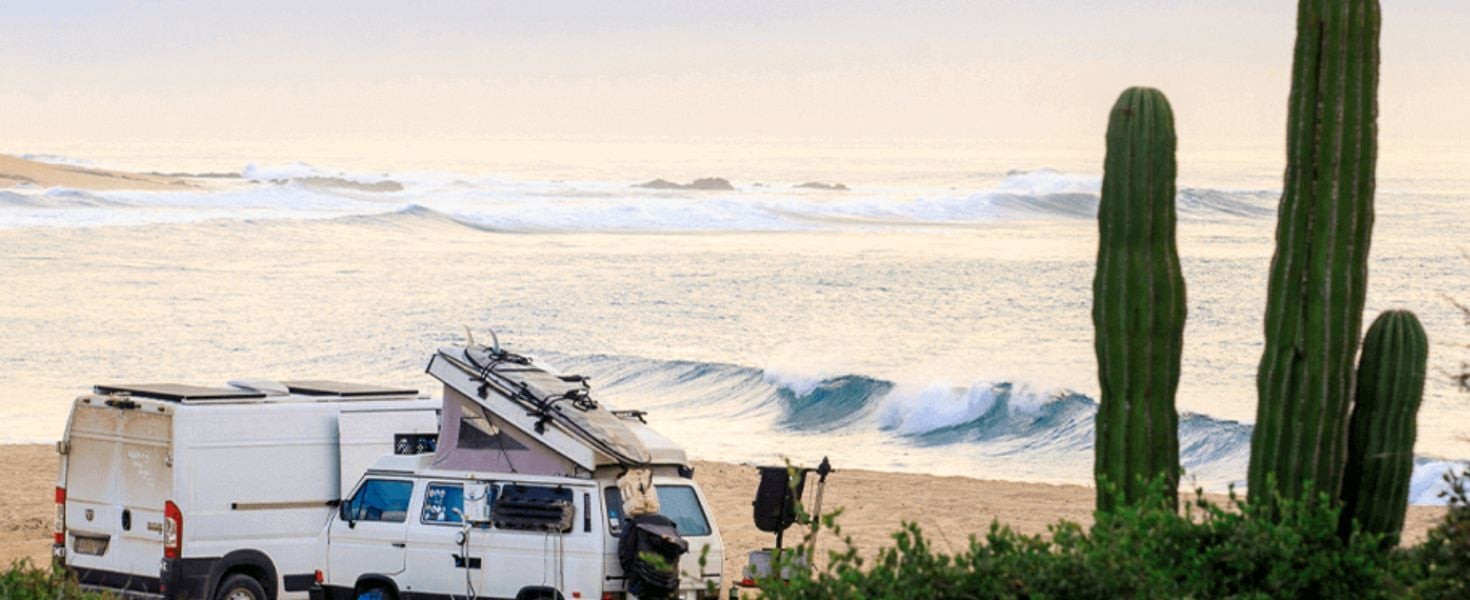
“Get in the van; we’re going to Baja.”
That’s what my buddy Corey—an avid surfer, mountain biker, and all-around adventurous waterman—told me last fall. He is the owner and resident of Boscha, a 1985 VW Vanagon, the Swiss army knife of overland rigs. Corey has been living in his van full time for nine years now, and of those nine van-dwelling winters, he’s been to Baja for them all. It’s safe to say that he knows Baja California Sur’s rough, road-gnarled coastline like the wrinkles on the back of his hand, and this trip would be no different.
My partner and I have also been living in my 1976 VW bus for nine years, traveling throughout the United States. In that time, we’ve wintered in the deserts of Arizona, the swamps of southern Florida, amid the golden light of California and Nevada, and on the beaches of Texas. I wanted a different sort of adventure this time, though—something more minimal than even a bus could provide: an adventure across the border. So, interest stirred by Corey’s rough-and-tumble “let’s go.” I packed a backpack, bid good-bye to my bus and my partner, and departed for a winter spent living out of my tent beside Boscha the Vanagon.
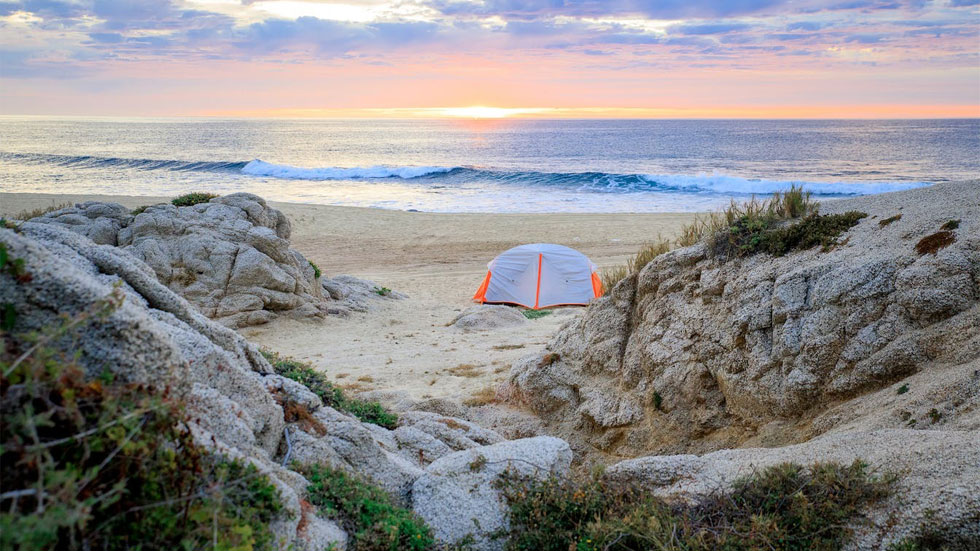
As we pulled away from Cabo San Lucas and into the cactus fields of the desert, I wondered about what we were chasing. In my work as a photographer, I try to capture the rustic feeling humankind longs to find in its far-flung travels. There’s a challenge in traveling with all the supplies one would need while being miles from any store or amenities—and satisfaction in knowing you’re the only person around as you build your fire and make your dinner. But that’s what Corey and I did: We went out into the wilderness, searching for a quiet beach where we could live in the wild, a beach we might find just over the next dune.
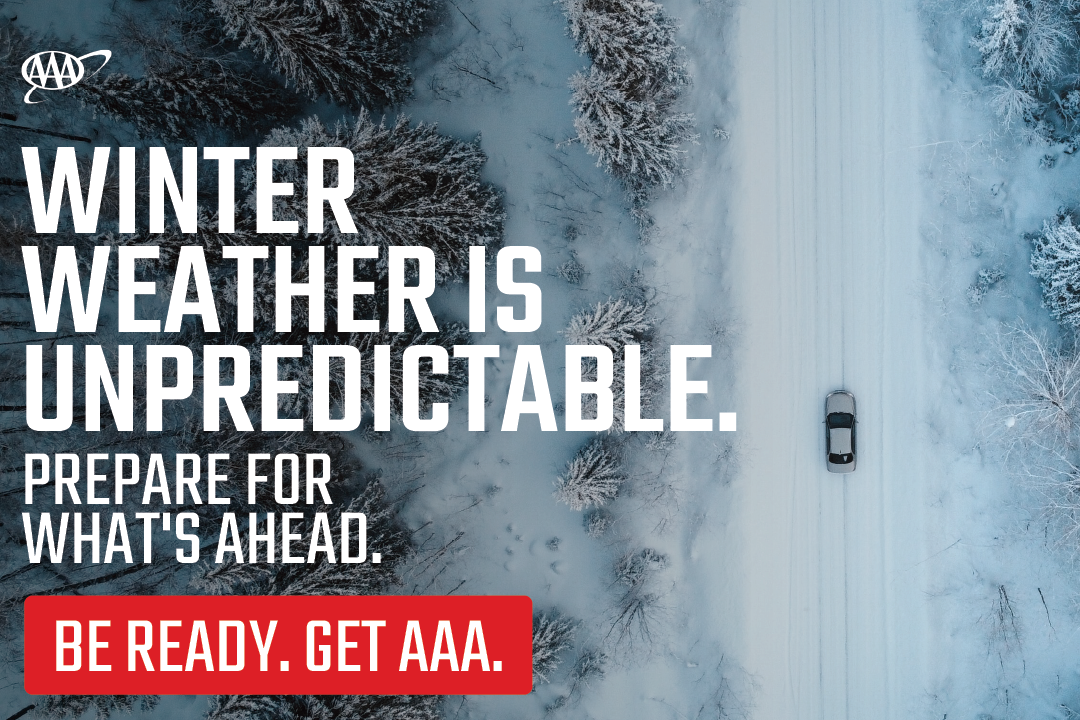
“But really?” you may ask. Why would we winter in a van in Baja, Mexico, which is, for the most part, a desolate place surrounded by ocean? There are only a few pockets of civilization, composed of a couple of small shops and houses huddled together on dirt streets that weave off the only paved road in the skinny stretch of land. The wildest thing, though, is the way Corey does it. He packs the van tight with supplies, drives over tire-shredding dirt roads through washes and cliff edges, and camps for months at a time without running water or electricity. Once at the beach, he lives like a caveman… who just so happens to have a van and a surfboard.
It’s not like Mexico doesn’t have amenities to offer. There are five-star hotels and beachside cabanas in which you can relax your days away in typical beach vacation splendor. Baja culture is rich, and their food is delicious; you do not have to rough it to enjoy what it has to offer. Corey’s sort of living is a choice.
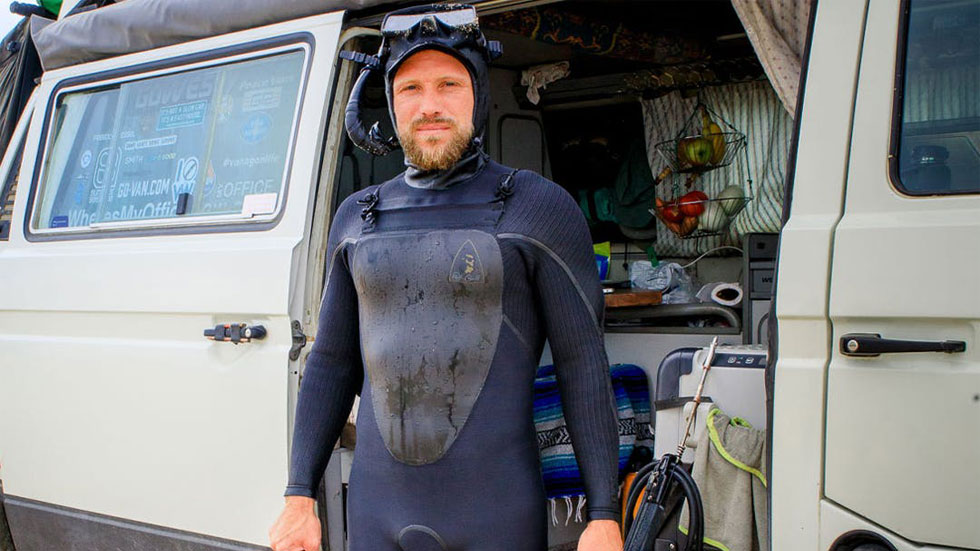
Corey and I are not the first to live the vanlife. Tents, hunting trailers, and RVs have been used to take people back to their roots ever since we started to grow away from them. In our cities and houses, we create environments that are streamlined and made for production, but every summer, our national parks are flooded with tourists looking to connect with the natural world. In our camping experiences, we slow down, choosing primitive daily routines such as cooking over an open fire and building sleep spaces. These inefficient processes create, by their very lack of convenience, mindfulness. Staring into the coals of a fire, we are forced to wait, and, in waiting, we remember that life consists of little moments that are intended to be lived.
And little moments were the bulk of our winter journey. Take the fishing days we shared, for example. There is something deliciously romantic about snorkeling out to a shallow reef and spearing that evening’s dinner. Out in the middle of the bay, armed only with your bare hands and a giant rubber band, you connect to a primal part of yourself. Sure, if you fail, you can go back to your van and make a fishless taco (and maybe hang your head in defeat). Still, the raw exchange of the hunt taps into a human history that was once familiar to us all—it’s a reminder of a simpler time when to eat or not to eat were the two choices of the day.
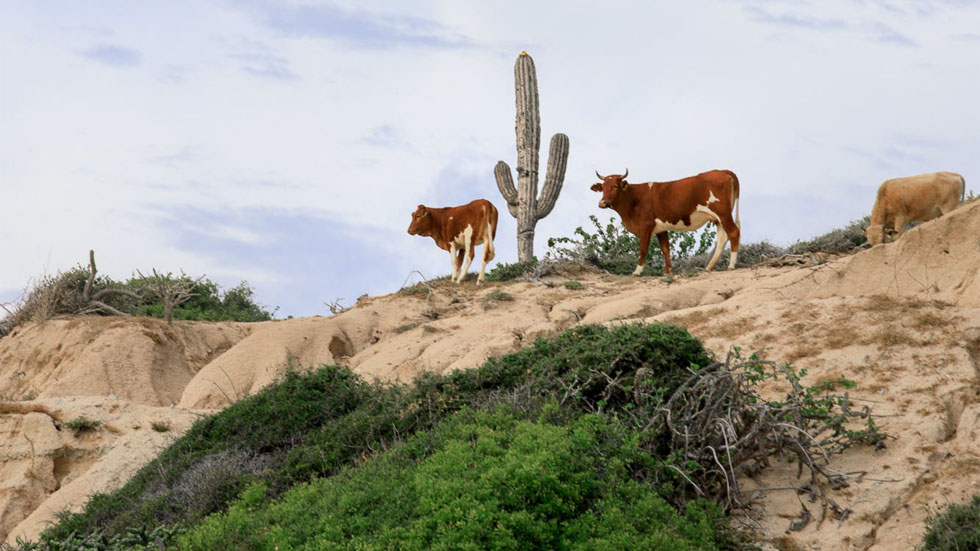
In a world full of creature comforts and prepared meals, I support the desire inside that yearns to connect to our inner caveman and live feral for a little while. You don’t have to live the vanlife like Corey and me, but I would suggest breaking away from your normal routine and doing something wild every once in a while. This summer, try taking a primitive vacation, camp in your local forest, or jump in the ocean to appreciate the romantic beauty of rustic living. Your inner caveman might just teach you something about feeling alive.

J.R. Switchgrass and his partner Kit have traveled all over the U.S. living in their 1970s V.W. bus. This creative couple captures their adventures through writing, photography, and filmmaking.